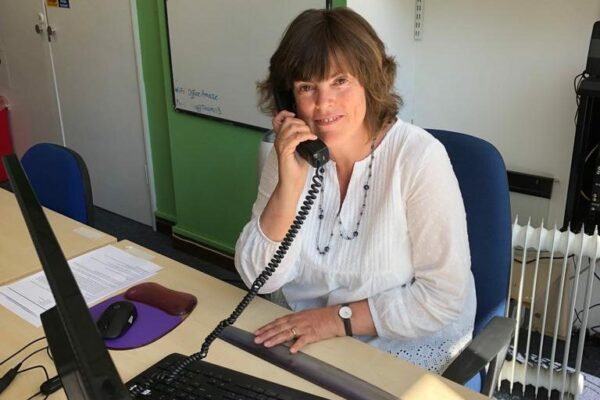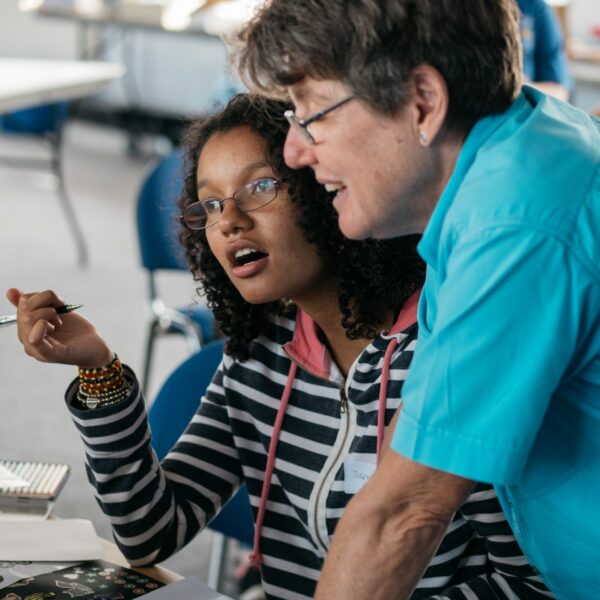Planning your child's transition to adulthood
As your child with special educational needs (SEND) becomes a young person, families and services need to come together to plan what kind of support they are likely to need as an adult. This is often called ‘preparing for adulthood’ or ‘transition planning’.
When should preparing for adulthood begin?
Preparing for adulthood for young people with SEND should start as early as possible. For young people with Education, Health and Care Plans (EHCPs), the law says this planning should begin at their Year 9 annual review and continue in every review after that.
Despite what the law says, parent carers often have varying experiences of when planning for adulthood begins. If your child is in Year 9 or above, you can ask that preparing for adulthood is discussed at their next annual review meeting.
Good practice in preparing for adulthood
The views, feelings and wishes of the young person should be right at the heart of planning for adulthood.
Any conversations around the young person’s future should also involve their parents and carers, their teachers and anyone else who works with them.
Planning must be based on each young person’s individual needs rather than what is available. It should identify the support the young person will need, how they want the support to be available, what action should be taken and by whom.
Preparing for adulthood focuses on four main areas of your child’s future:
- Education and/or employment
This includes exploring different college courses and their employment options, such as support with becoming employed and help from supported employment agencies. Find out more about Education and training and Work and Volunteering - Independent living
This explores how the young person can have choice, control and freedom over their lives, their support, their accommodation and living arrangements, included supported living. Learn more about Housing options and Money. - Participating in the local community and society and having positive relationships
This includes having friends and supportive relationships, and participating in and contributing to, their local community. - Being as healthy as possible in adult life
This involves thinking about what the young person will need as an adult to manage their physical and mental health so that they can be as healthy as possible. Find out more in Moving to adult health.
There is no set rule or procedure that discussions around preparing for adulthood should follow. You may want to start by thinking about what support you know your child will need, or may need, and discuss this with your child’s school or college staff and any other professionals involved with them. You should also take time to help your child think about their wishes and aspirations. Amaze produces a booklet for young people in Year 9 to help them think about their future.
Download our Preparing for adulthood fact sheet (pdf 675kb) or see the section on involving your young person in decision making below.
Read more about how preparing for adulthood reviews should work in the Special Educational Needs and Disability Code of Practice: 0-25 years (SEND Code of Practice). This is government guidance that schools, colleges and local authorities should follow.
Planning for the next steps in education
You and your young person can visit colleges and sixth forms on ‘open days’. These are useful opportunities for prospective parents and carers to talk with staff and find out more about the courses and support they offer. Look at each college or school sixth form’s website for details of when these are. These can be very busy events so you can visit on your own if you know that your child would find it difficult.
There is no set deadline for college applications as there is for primary or secondary schools. Some colleges do set their own deadline though, so it’s worth checking if they have one.
Once your young person has decided where they’d like to go, they can apply to the individual college from the autumn term onwards. The application is different for those who have an EHCP.
If your child has an EHCP
The annual review of your young person’s EHCP should take place in the autumn term of year 11 (the last year of school) and should look at their educational options and what support they may need for a successful transition to the next setting. After this, the local authority caseworker will make amendments to the EHCP and must send you a copy of this. Please refer to our in-depth guides to annual reviews for more detail about this.
The law says that the final amended EHCP must be sent to you by the 31 March in your child’s Year 11. The local authority will ask you where you want your young person to attend and will share their EHCP with that post-16 setting and other services that may need to be involved.
Read more about further education and training for young people with SEND.
Involving young people
Young people should be involved in making decisions about their future and, by law, local authorities must have regard to young people’s views when planning for adulthood. Your young person may need support to thinking about what they want and to communicate this to the professionals involved in helping to plan their future.
Think about their preferred way of communicating and/or the support they may need to do this and make sure their views are recorded and shared. They may get this support from you, another trusted adult or local advocacy services. Read more about this in our Involving Young People fact sheet (pdf 700kb)
If you want to help your child think about their future, you could use Amaze’s booklet for young people in Year 9 and above. It includes questions to get them thinking about what they like, what they are good at and what they might want in future.
Get advice from Amaze
Our SENDIASS advice team can give you or your young person one to one advice on anything to do with their special educational needs and disabilities, including education, benefits, transition and more.







